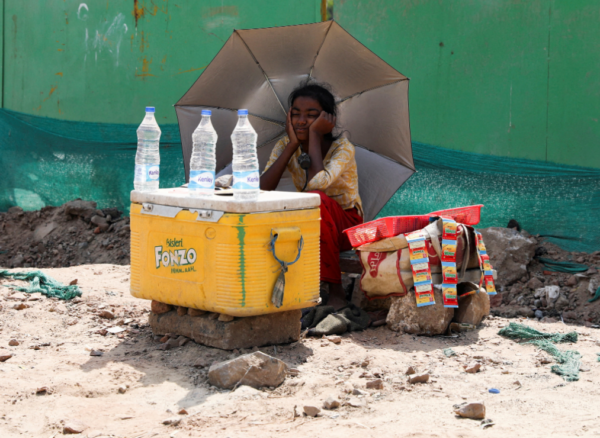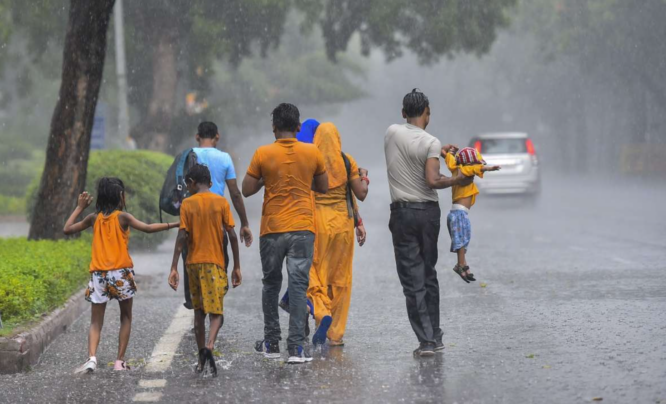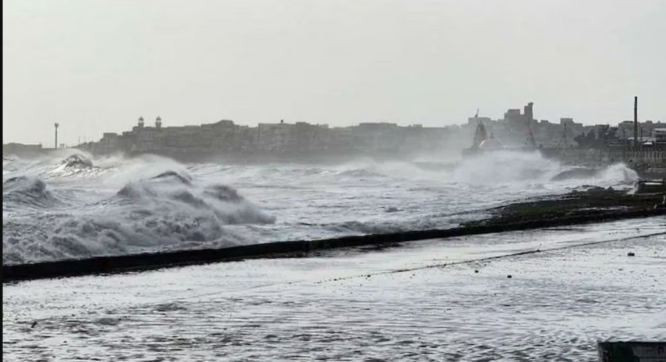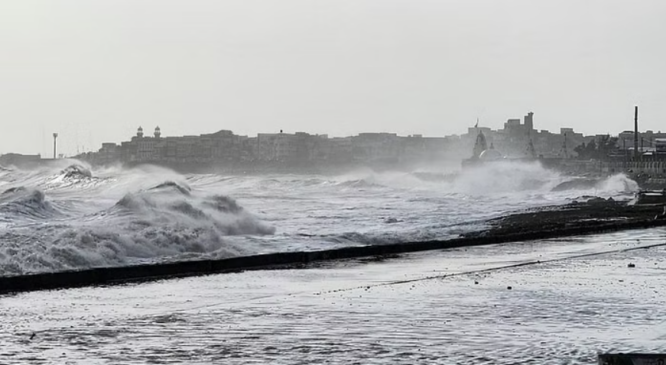Paris The UN warned Monday that the globe would surpass the 1.5-degree Celsius global warming limit in a decade, causing disastrous climate change repercussions quicker than projected.
In roughly a decade, the globe will surpass the crucial 1.5-degree Celsius global warming limit, the United Nations said on Monday in Paris, warning that the disastrous effects of climate change are occurring faster than anticipated.
In the final installment of a significant series of papers issued during a pivotal decade in human history, the UN’s climate advisory group called for drastic reductions in emissions that warm the globe.
The primary message of the Intergovernmental Panel on Climate Change is that while humans has brought the earth to the brink of climatic disaster, it is still possible to guide global temperatures within reasonably safe boundaries.

This will require a massive international effort.
“Rapid and far-reaching changes across all sectors and systems are required to achieve deep and persistent emissions reductions and assure a livable and sustainable future for all,” stated the “summary for policymakers” of the study.
The IPCC’s study will serve as the foundation for intense political and economic debates in the coming years, beginning with the United Nations Climate Change Conference (COP28) in Dubai later this year.
The 36-page summary, which is a synthesis of six key assessments published since 2018, is a stark reminder that although mankind possesses the means to avert climate disaster, it has yet to implement them.
Yet, it is a “message of optimism,” as the chairman of the IPCC told the AFP.
Hoesung Lee stated in a video interview, “We have the knowledge, technology, tools, and financial resources necessary to address the climatic concerns we have known about for so long.”
A strong political desire to tackle these challenges once and for all is now absent.
‘Betrayal’
According to the Intergovernmental Panel on Climate Change (IPCC), the world is now on track to achieve 1.5C over pre-industrial levels — the more ambitious and safer objective of the Paris Agreement — in the early 2030s, which will intensify the severity of future consequences.
Greta Thunberg, a climate campaigner, told AFP, “The fact that those in power continue to live in denial and intentionally advance in the wrong direction will finally be recognized as the terrible betrayal that it is.”
With less than 1.2 degrees Celsius of warming to date, the globe has already witnessed a rise in fatal and catastrophic extreme weather. The most disadvantaged groups have already been severely affected.
“Within a generation, the warmest years we have ever seen will be among the coldest,” Friederike Otto, a climate scientist at Imperial College London and the report’s principal author, told AFP.
The advantages to society and the global economy of keeping global warming below 2 degrees Celsius outweigh the economic costs, according to the IPCC.
Passing 1.5C may result in extinctions on land and in the oceans, crop failures, and a greater likelihood of reaching so-called “tipping points” in the climate system, such as the demise of biodiversity-rich coral reefs and accelerated melting of polar ice sheets that contribute to sea level rise.
On Very Thin Ice
In reaction to the findings, UN Secretary General Antonio Guterres stated that wealthier nations aiming for carbon neutrality in 2050 or beyond should “defuse the climatic time bomb” by accelerating their target to as near to 2040 as feasible.
“Humanity is on thin ice, and it’s melting quickly,” he said in a video message, comparing the IPCC report to “a survival handbook for mankind.”
After Russia’s invasion of Ukraine, the globe has hurried to shore up energy security, with countries in Europe and Asia resorting to severely polluting coal despite the surge of renewables.
The energy sector will require one of the most rapid changes, according to the research, since solar and wind power are already rising substantially.
The IPCC stated that without the deployment of costly and coming technologies to collect and store carbon pollution, greenhouse gas emissions from current fossil fuel infrastructure will be sufficient to push the planet over 1.5C.
While the IPCC reports itself are created by scientists, the summary document is approved by over 200 nations.
Language disputes slowed down the week-long deliberations on this draft in Interlaken, Switzerland, which stretched two full days into overtime.
According to witnesses, Saudi Arabian negotiators attempted to water down sections that highlighted the major role of fossil fuels in fueling global warming.
Even if warming is limited at 1.8C, an optimistic scenario according to some scientists, data indicates that by 2100, half of humankind might be subjected to spells of life-threatening excessive heat and humidity.
In the synthesis study, these data are depicted on a map of the world depicting the expected lethal effects of humid heat throughout the tropics, particularly in Southeast Asia, sections of Brazil, and West Africa.




